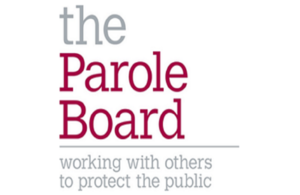Parole Board Members Blog - July 2021
Panel member Sian Flynn - who joined the Board 15 years ago - discusses some of the common misconceptions around parole and explains the reality of being a Parole Board member.

Many people’s experience and understanding of parole - and prisons - doesn’t go much further than what was depicted in the Shawshank Redemption or in television dramas and documentaries. The parole process in England & Wales is a far cry from what is portrayed on our television screens in American films or TV shows.
There is no doubt that the Parole Board is one of the most misunderstood public bodies in this country. It is frustrating that even good friends still say: “This is Sian, she works in probation” or “She decides whether prisoners can be released early”. Neither are the case and I spend quite a lot of time getting annoyed at the radio when commentators and politicians get it wrong.
When I joined the Parole Board 15 years ago, I quickly learned that our job is very different from that of a judge. Judges deal with sentencing. It is their role to hand down the appropriate punishment to offenders convicted of a crime and set the minimum period which they should spend behind bars before being considered for release.
Put simply, Parole Board members decide if a prisoner is safe to release. We take these decisions extremely seriously. After all, my colleagues and I have families of our own and all live in the community. Why would we release someone we considered dangerous?
We listen very carefully to experienced professionals, including probation and prison officers, psychologists, mental health professionals and the police, all of whom have worked closely with the prisoner. At a hearing, we question and test these professionals - and the prisoner - in their decision making and recommendations and only then do we come to a conclusion when we have weighed and sifted the evidence. Members will often digest over 1,000 pages of evidence in the lead up to a hearing. We also hear Victim Personal Statements from the victim’s families. These can be extremely harrowing and powerful accounts which are paramount in ensuring that the victim’s voice is heard.
As a Parole Board member, I have no powers to release a prisoner who is not eligible for release. The vast majority of all prisoners are released automatically at the halfway point of their sentence without Parole Board involvement. The other 5-10% often convicted of the most serious offences, are serving indeterminate sentences, for example life sentences or IPPs as well as anyone recalled to prison. It is this small section of the prison population who I deal with as a member.
It is often reported that the Parole Board releases prisoner’s “early” - This is not true.
In the case of life sentenced prisoners, they are only seen by the Parole Board after they have served the punishment part of their sentence, known as the tariff, which was set by the trial judge at the time. Once this term has been served, the Secretary of State for Justice will refer them to the Parole Board and a panel of Parole Board members will then decide if they are safe to release or not.
I have no powers to change the sentence set by a judge. It is my role to assess whether it remains necessary for the protection of the public for a prisoner to remain inside after that sentence has been served. We will only ever release someone if we deem it safe to do so.
I think I would always say that it’s very heartening when you see prisoners who have used their time in prison to improve their lives and have genuinely reduced the risk of them hurting someone in the future. I’ve often dealt with applications to have supervision suspended in the community. That could typically be when a prisoner who has been convicted of a serious offence, has been released and completely rebuilt their life over time in the community, having accommodation, a job and in some cases a family. But be sure, we approach each case on an individual basis. We do not make decisions about someone based on generalisations, we do not assume that just because they’ve behaved well in prison or come across well in their hearing that all will be well on release.
Prisoners are human beings, many with the capacity to change and improve, but they would struggle to pull the wool over the eyes of members. Indeed, there are prisoners who will spend the rest of their lives behind bars because the Parole Board deems them too dangerous to ever be released.